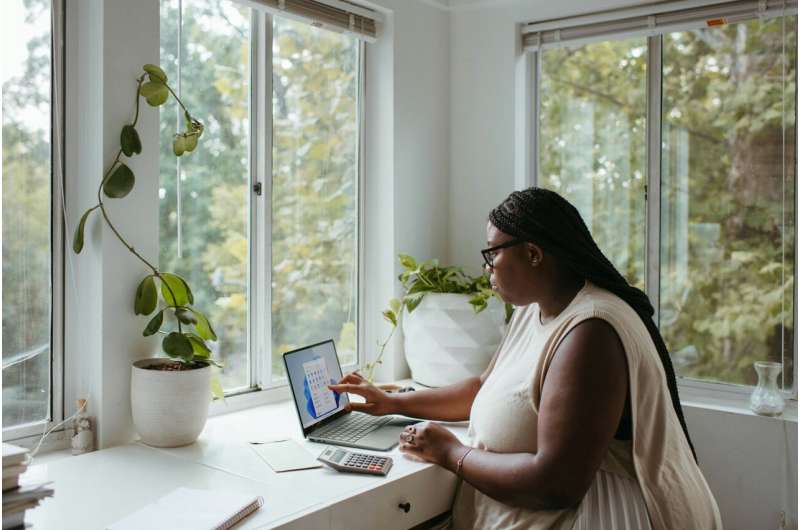

Women living with chronic pain face medical gender bias and high levels of discrimination in the workplace, according to new research highlighted in a joint submission by the University of Melbourne and Western Sydney University to the Victorian Inquiry into Women’s Pain.
Between 2023 and 2024, University of Melbourne and Western Sydney University researchers conducted a nationwide survey assessing the impact of remote working on personal and family well-being.
The findings reveal women suffering from chronic pain who work remotely to manage their condition are often stigmatized by their employers.
Out of the 512 survey respondents, 12 of these respondents reiterated that working from home was crucial to manage their chronic health condition. Eight women reported they have been subjected to years of pain dismissal which has impacted their ability to work. All of these participants indicated they suffered from chronic pain or a chronic health condition, and as a result, they all worked from home in some capacity.
University of Melbourne geographer and submission co-author Dr. Elisabetta Crovara said, “Health practitioners often downplay women’s pain as being exaggerated or even fabricated. The dismissal, disbelief and delayed diagnosis caused the women we spoke to suffer in silence by pushing through their pain at work.
“Not being believed or taken seriously by their practitioners brewed shame and resulted in these women concealing their pain at work through various means including self-medicating, which we know can lead to worsening pain conditions and burnout.”
“While it’s not compulsory to disclose chronic conditions to employers, the participants said receiving a diagnosis and sharing their diagnosis with their employer made it easier to get access to flexible working arrangements based on medical grounds.”
In Victoria, 40% of women live with chronic pain, yet a third of these have experienced dismissal of their pain and lack of care. The findings from the in-depth interviews reiterate that flexible working arrangements are vitally important for women with chronic pain, but it can often come at a cost.
“Some of the women we interviewed said they were overlooked for career opportunities and even bullied simply for working from home,” Dr. Crovara said. “One participant claimed her employer repeatedly excluded her from key decision processes and refused to give her access to work documents, while another was told she wasn’t allowed to train new staff despite being the most experienced member in her team.”
The research team has put forward a series of recommendations for workplaces to adopt, including mandating equal and just access to flexible work.
“Remote working should be the norm and not treated as ‘a prize.’ The ability to work from home isn’t a luxury, it means an employee with a chronic pain condition doesn’t have to forgo treatment due to not being able to attend medical appointments that fall during work hours. Greater and equitable access to flexible work means greater and equitable access to the health care system,” Dr. Crovara said.
“As diagnostic processes for most chronic pain conditions are slow and uncertain, workplaces need to foster a culture of trust and care. We are recommending specialized training for managers who look after remote workers to ensure they receive the support and compassion they deserve.”
Provided by
University of Melbourne
Citation:
Calls for greater support for working women battling chronic pain (2024, September 13)
retrieved 13 September 2024
from https://phys.org/news/2024-09-greater-women-chronic-pain.html
This document is subject to copyright. Apart from any fair dealing for the purpose of private study or research, no
part may be reproduced without the written permission. The content is provided for information purposes only.